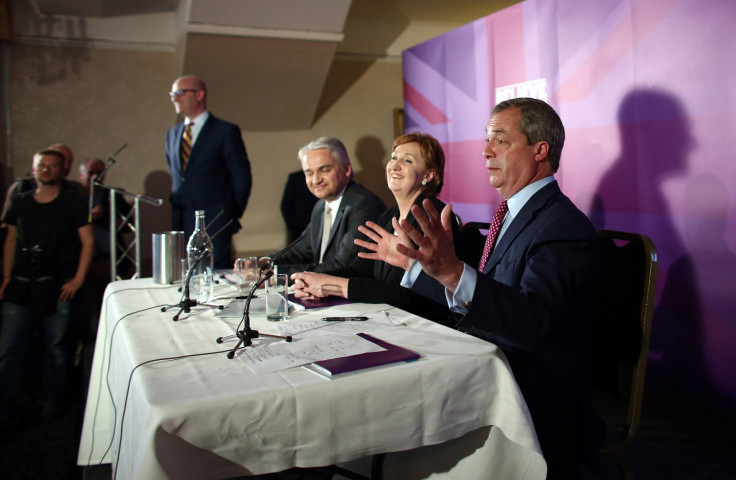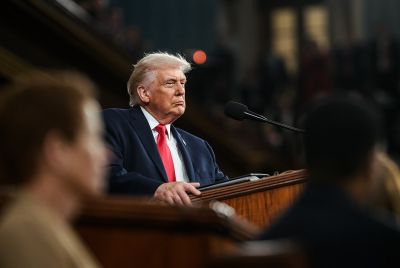Ukip crisis: The purple party faces internal earthquake over split personality

Ukip once promised to trigger a political earthquake under Westminster, now the Eurosceptic party faces being torn apart by its own internal tremors. After all, the latest incarnation of the purple project was built on a fault line between right-wing libertarians and Old Labour throwbacks.
The party's embrace of anti-mass immigration policy exemplifies Ukip's split personality. The move made its small state supporters wince. Alexandra Swann, a Tory turned "future face of Ukip", fell out with the party over the issue. Alan Sked, the founder of Ukip, claimed Farage was "obsessed" with immigration.
The party clearly made the move to attract more votes and broaden its base. The decision was justified when Ukip won the EU elections last year when they secured 24 MEPs. Of course, there was talk of leaving the baddies in Brussels behind. But Farage & Co. were just as much campaigning on an anti-immigration ticket.
The shift to the left didn't go unnoticed and soon the party was mocked as "RedUkip", a reference to Philip Blond's Red Toryism. The label stuck when Patrick O'Flynn, Ukip's economic spokesman, proposed a tax on luxury goods at the party's autumn conference last year.
The so called "wag" levy was designed to woo working-class voters. But Farage intervened less than 48 hours after O'Flynn mooted the VAT reform and ditched the policy. The proposal was "dead" as long as he was leader, Farage ruled.
The clash came just over a month after Ukip enacted a parliamentary coup. Doulgas Carswell dramatically announced that he had quit the Conservatives for Ukip and a by-election in Clacton was imminent after he resigned his House of Commons seat.
The party secured its first MP when Carswell was re-elected under a purple flag. The 44-year-old gave Ukip more credibility and the direct-democracy advocate bolstered the party's right-wing.Mark Reckless, another Tory turned Kipper, followed suit.
Ukip had two MPs and some pollsters predicted that the insurgents could win up to 10 at the general election. It all changed when 7 May came.
The party garnered more than 3.9 million voters at the general election but that, under first-past-the-post, only translated into one seat – Carswell was back in Westminster.
Reckless was booted out by the electorate, Tim Aker failed to win Thurrock and Farage came second in South Thanet. The movement's charismatic leader offered his resignation the next day, the party's national executive refused and the Eurosceptic firebrand was back on top.
Tensions brewed. Carswell fell out with Ukip HQ over the use of public money ("short money") designed to help non-government parties with administrative and staffing costs.
Then O'Flynn launched an extraordinary assault against Farage. The Ukip leader risked turning the party into a "personality cult", he told The Times.
Ukip's shift to the left secured short term gains but the political scar tissue it created is now splitting. Farage will have to pull something momentous out of the bag to keep the multi-coloured political project together.
© Copyright IBTimes 2025. All rights reserved.






















